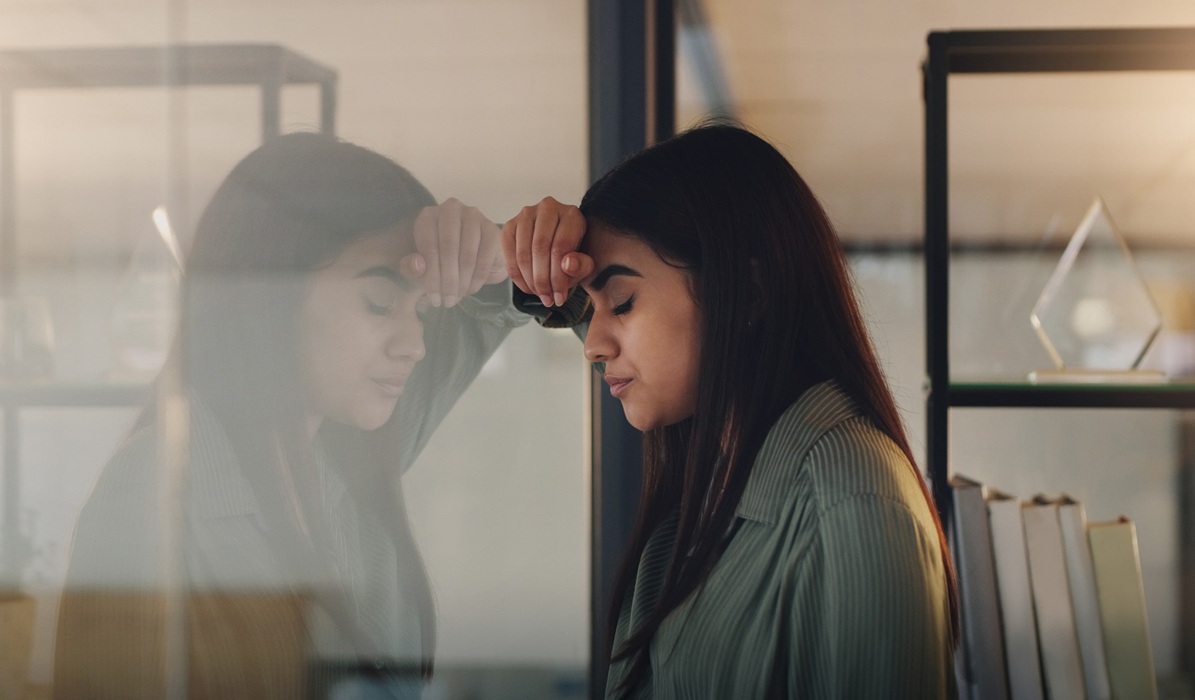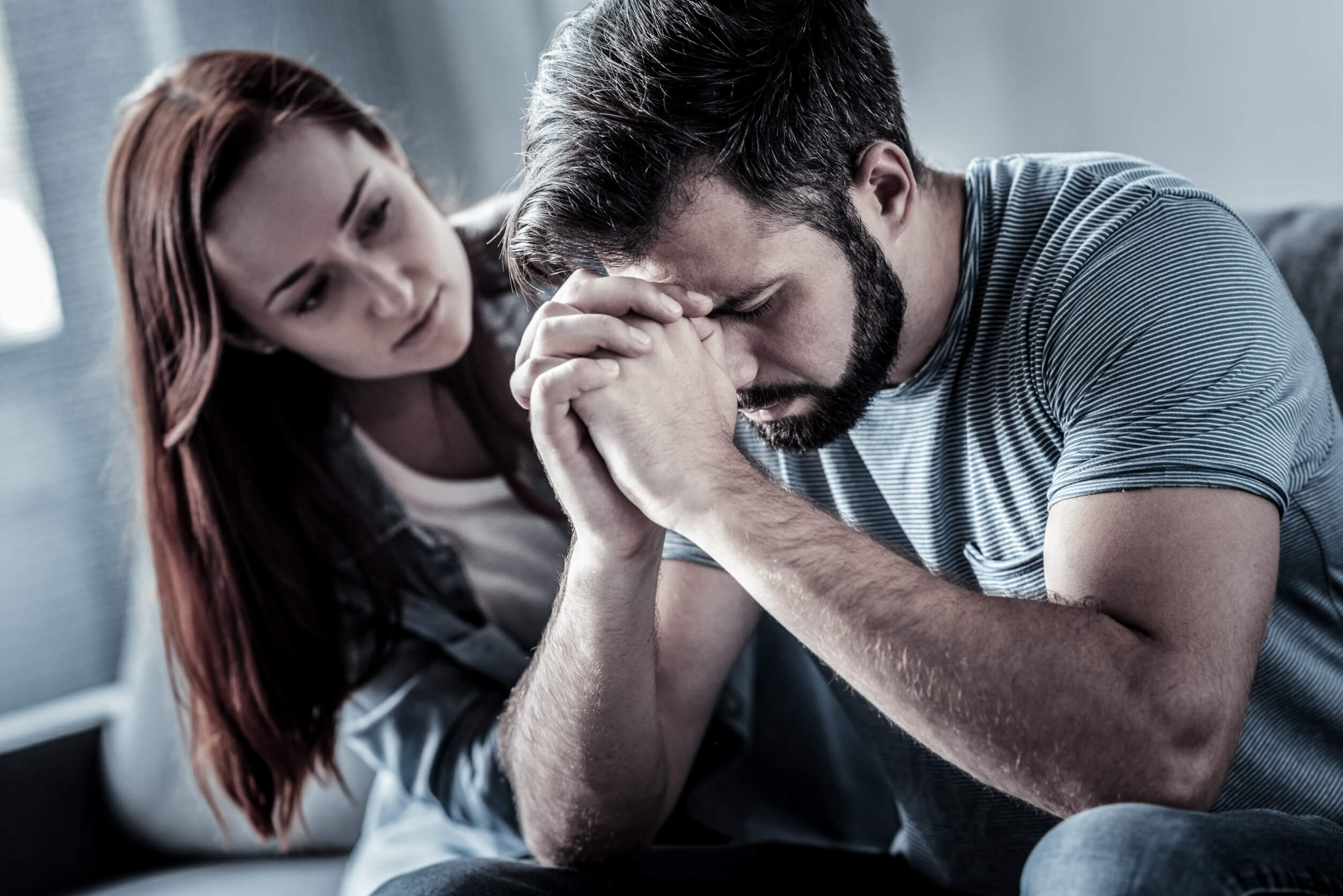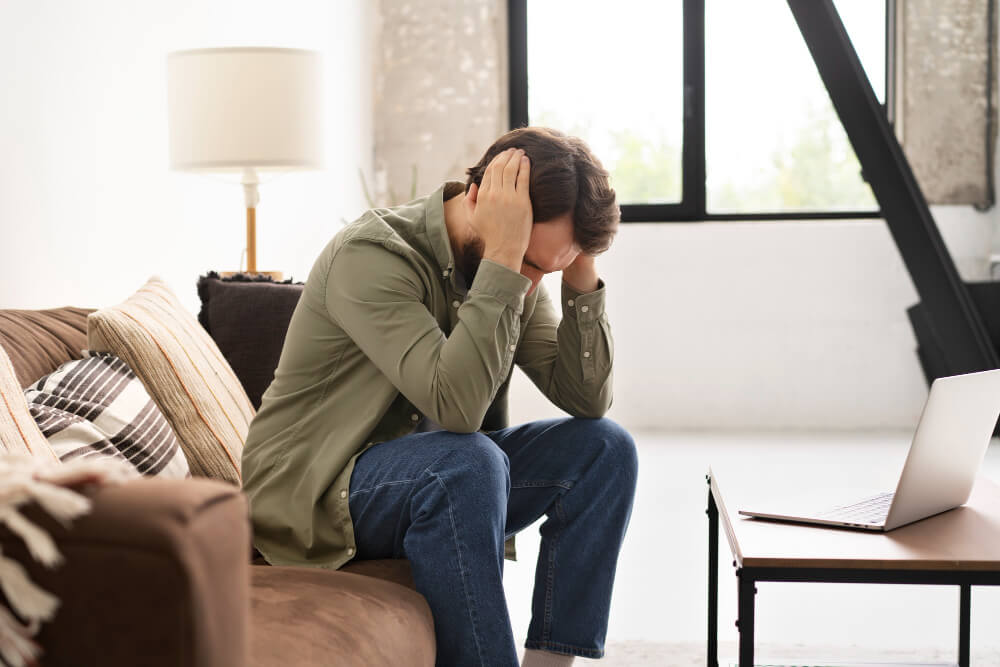Living with depression can take a huge toll on your relationship. The good news is, whether you have depression yourself or you have a partner with depression, you can learn what to look out for and what you can do to boost your and their mental health.
with contributions from Gabrielle Ilagan
How Depression Affects Relationships
Depression can interfere with many aspects of living. It can deprive you of the energy or interest you need to stay in touch with the important people in your life. In addition, it can convince you that others don’t want to spend time with you. It can even make you think that you don’t deserve to see your friends or loved ones.
These effects of depression can fray relationships in your social, romantic, work, or family life. And the weaker these relationships get, the harder it can be to improve your mood. Why does that happen? Because isolation can accelerate depression.
Many of the activities that help people overcome depression can be done alone. However, many of them are more effective when done with others. For example, going out to see a movie can boost your mood, but doing it with someone you care about can be a richer experience — if you pick the right person.
Unfortunately, the more your relationships weaken when you’re depressed, the harder it can be to find someone to do things with. This often becomes a vicious cycle.
When you’re dating someone
If you’re romantically involved with someone who doesn’t live with you, depression can make it nearly impossible to keep things going. You may think, the relationship is destined to fail anyway, so what’s the point? Or you might think that the other person doesn’t really want to spend time with you. Either way, reaching out to them can feel pointless and painful when you’re depressed.
The types of unhelpful thinking that often happen in depression can hide the real truth. For example, despite what you might believe if you’re depressed, not hearing from you can actually drive the other person away. If you don’t reach out to them, they may conclude you’re rejecting them — even if this isn’t your intention. In this way, depression can destroy relationships that otherwise might have worked out.
RELATED: How to Overcome the Vicious Cycle of Depression and Avoidance
When you and your partner live together
In some ways, when a couple cohabitates, depression can have less of an impact. If you’re depressed and live with your partner, you may end up being forced to do things that help reduce your depression. For example, if you both go out every Friday night, having this in your weekly schedule can improve your mood. However, living together can also make one person’s depression feel like it’s a relationship issue instead of an individual one.

Relationships Take Work — Depression Makes This Work Harder
Whether you’re living with your romantic partner or not, depression is a threat to your relationship because it can undermine the everyday things you need to do to maintain relationships. For example, it might be hard for you to have the kind of supportive interactions with your partner that keep things going smoothly. If your partner feels like you’re withdrawing, they may internalize that and assume you’re dissatisfied with them. Or they may assume that your depression is their fault (regardless of whether that’s true).
RELATED: What Causes Depression? It May Not Be What You Think
Relationships, especially romantic ones, sometimes require serious conversations. Depression can make these conversations much more challenging. Whether you’re discussing where to go on vacation, how to parent your child, or whether to get married, depression can make you distrust your own intuitions. This can make you want to remove your voice from the decision-making process. The difficulty is that in a healthy relationship, both voices are necessary when it comes to important decisions. When that doesn’t happen, it sets the stage for resentment and future problems.
When You’re the One Who’s Depressed
If you’re worried about your relationship, there are several helpful steps you can take. One option is to speak to your partner about your depression. If they’re not aware and respond supportively, then you’ve got an important ally! This kind of conversation can also help your partner support you by letting them know about what’s on your mind.
Another option is to seek professional help. Don’t assume that by getting a consultation with a mental health professional that you’ll end up on medication or doing years of therapy. There can be many outcomes of such a consultation. They may recommend something helpful for you that you weren’t aware of.
If your symptoms are moderate to severe — i.e., significantly affecting your mood or your ability to enjoy things, or leading to you miss work, school, or other obligations — it’s even more important to get a professional consultation.
If your symptoms are mild, consider some of the self-guided evidence-based depression treatment programs. These programs typically involve elements of cognitive-behavioral therapy (CBT). For example, Mind Over Mood is a self-guided book that draws directly from CBT.
What typically doesn’t help is to change nothing. When you’re depressed, making changes feels challenging. But if you’re concerned about your romantic relationship, now may be the best time to try something different.
When Your Partner is Depressed
Relationships are where depression can sometimes have its biggest impact. If your friend or romantic partner is experiencing depression, it can raise a host of different questions and reactions for you.
You might wonder if you’re inadvertently contributing to the problem. You might even fully blame yourself for your partner’s struggles. Perhaps there is some truth in this. Sometimes you might take over the responsibilities that your partner with depression can’t fulfill — like keeping social obligations, doing household chores, or planning activities. This sometimes helps, but can also unintentionally prolong the depression.
Another possibility is that you might have a negative response to the depression and get angry at your partner. This is never healthy. Or you might just feel frustrated at not knowing quite how to help. This is a common experience, so know that you are not alone in feeling this way.

The most important thing you can do if your partner is depressed is to show you support them despite the depression. Why? Excessive self-critical thinking is a common feature of depression. If your partner knows you’re in their corner, it can be a big help.
RELATED: How to Help Someone with Depression
Tips on how you can support your partner with depression
If their depression is significant enough, consider encouraging them to seek professional help. They may or may not be receptive to this idea, but it can be helpful since people with depression can lose sight of how much happier they were in the past or could be in the future. Seeking help is often not an obvious choice for a depressed person.
Here are more ways you can support your partner:
- Encourage self-care: Suggest that they try to do the things that generally contribute to good emotional health. Sometimes one can improve depression by resuming some simple activities that have fallen by the wayside, like exercise, regular sleep schedules, seeing friends, or pursuing hobbies or other interests.
- Offer practical assistance, but with healthy boundaries: Help your partner with some tasks that may feel overwhelming. For example, offer to accompany them to therapy appointments, offer to assist with chores for a day, or remind them about their medication. At the same time, keep encouraging them to try to engage in self-care strategies. This can give them a sense of accomplishment and avoid creating a dynamic where your partner becomes overly dependent on you.
- Communicate openly: Encourage them to express their feelings and concerns without judging them. Listen compassionately. Validate their feelings by letting them know you can understand their perspective, and that their feelings make sense.
- Be patient: Understand that depression can affect your partner’s mood, energy levels, and motivation. Practice patience with their ups and downs and avoid taking their low moods personally. Offer reassurance and remind them that you’re there for them.
Lastly, taking actions to support your partner is wonderful, but it can also be emotionally draining and difficult to juggle with your own life demands. Remember that your own self-care matters, too! Reach out when needed to trusted friends, family, or others in your support network.
Does Depression Affect Intimacy in a Relationship?
Depression can have a negative influence on romance and sexual intimacy. Because of the urge to withdraw from others and the fatigue that can go along with depression, you might notice your interest in physically intimate activities, from cuddles to sex, dipping or even disappearing. Emotional intimacy can suffer, as well. Because you might feel worthless or guilty, you might not share how you’re feeling with your partner.
Just as depression can affect intimacy, intimacy can affect depression. Whether emotionally, physically, or both, connecting with a supportive partner in a meaningful way can help lift your mood.
Frequently Asked Questions
How can I tell if my relationship is ruining my mental health?
Just like a healthy connection to your partner can help your depression, unhealthy relationships often contribute to depression. For example, if your partner doesn’t show any interest in what you have to say, makes disparaging comments, or even insults you, this can worsen your self-esteem and lower your mood. Alternatively, your partner might show signs of controlling behaviors or might influence you to cut out other loved ones from your life. Becoming more isolated and limiting your activities at the request of your partner can also negatively affect your mental health.
Is mental health a reason to break up?
While mental health challenges can place strain on your relationship, it doesn’t automatically mean that breaking up is the only answer. The best solution depends on many factors. For example, consider the severity of the relationship issues, the willingness of both partners to seek support and make necessary changes, and the overall impact on each person’s well-being. Sometimes, with open communication, understanding, and/or outside help, couples can work together to navigate mental health challenges and strengthen their bond. However, in cases where the relationship becomes unhealthy, physically or emotionally abusive, or significantly worsens someone’s mental well-being, ending the relationship may be a wise step. There’s no one-size-fits-all solution, since each couple’s situation is unique.
How long do depressive episodes last?
This varies from person to person. Generally, a clinical diagnosis is given when a depressive episode lasts for a minimum of two weeks. However, depressive episodes can persist for much longer periods, from several weeks to even beyond several months. Working with a professional therapist could potentially help shorten its duration, or help you get through it in a way that minimizes how much it affects your relationship and other areas of your life.
Can depression make you break up with your partner?
Just because you or your partner is depressed, doesn’t mean a breakup is inevitable. Depression itself can’t make you end your relationship. Rather, it’s often the consequences of not dealing with your depression that can create issues. For example, depression can contribute to lack of communication or intimacy. This is a problem because a relationship’s duration depends on how much you and your partner can still communicate and care for each other, even when life gets challenging. However, tough moments are a part of any relationship. Adapting to these tough moments means that you might need to find new ways to communicate during fraught moments as a couple – ways that don’t leave your partner feeling insulted, blamed, or dismissed. It also might mean that you and your partner might need to grow your patience and empathy for each other as you figure out how to best navigate the depressive episode.
Need help?
If you think that depression is threatening your romantic relationship, or if your relationship is worsening your depression, you can consider speaking to one of our therapists. Please contact us.









